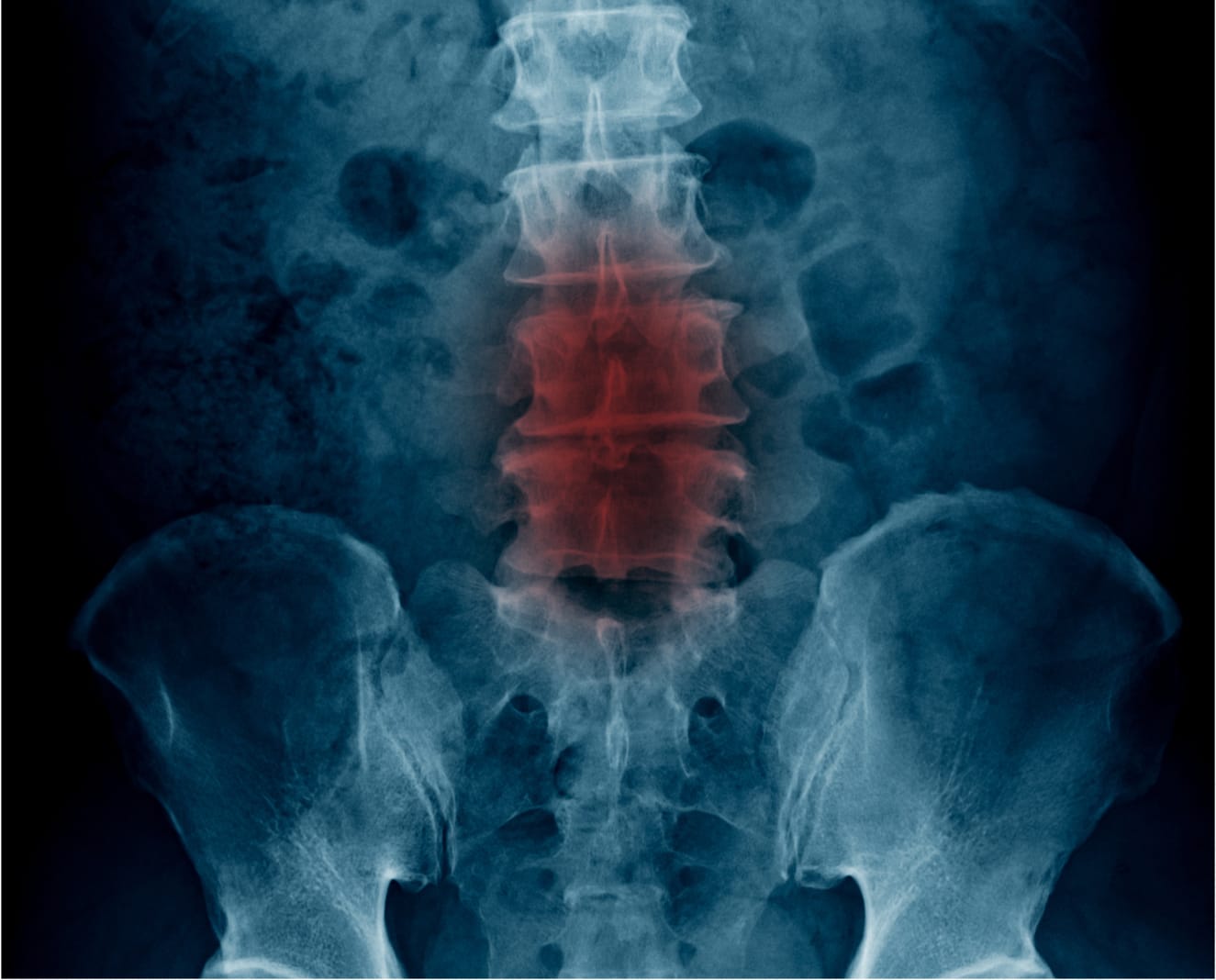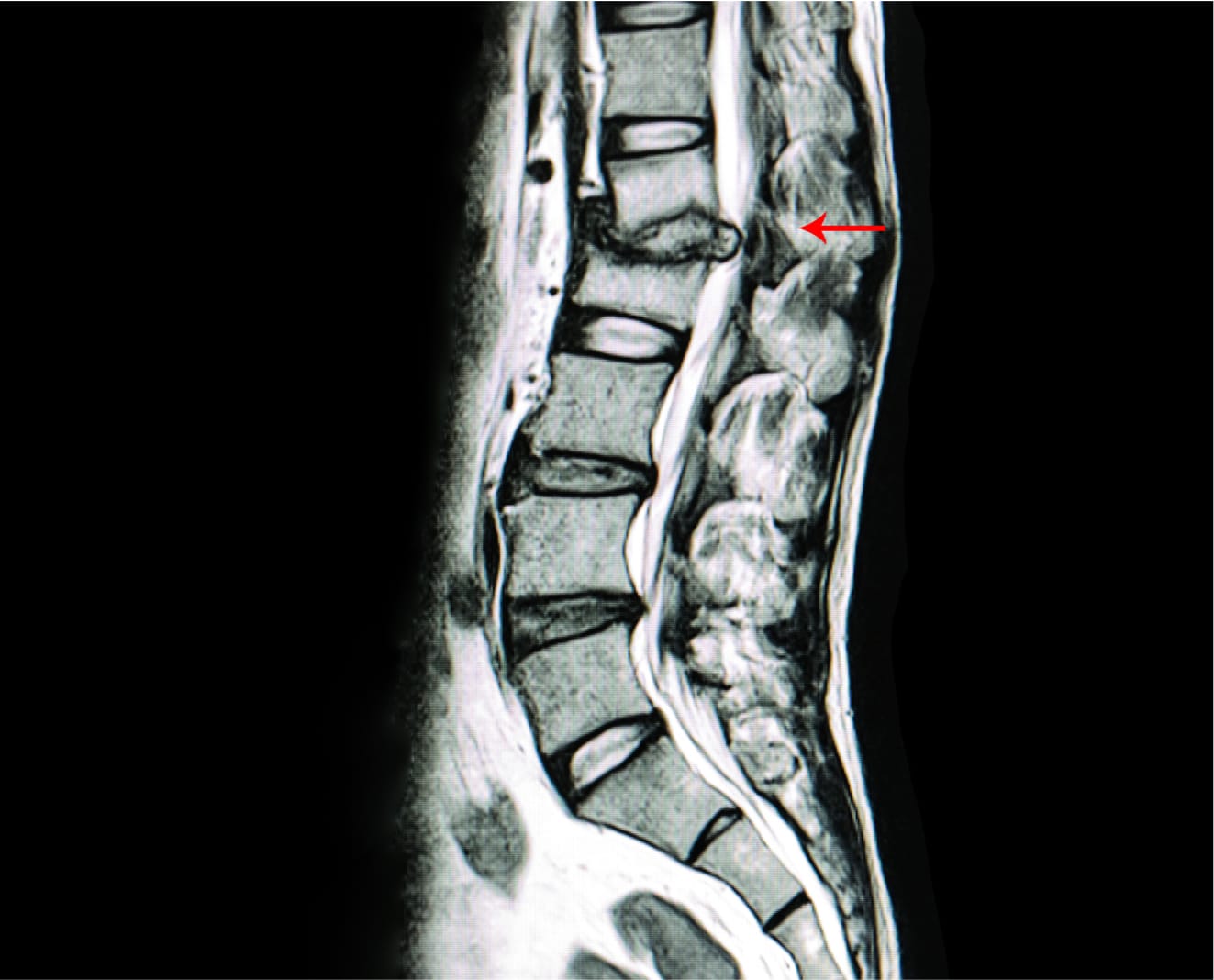Spinal stenosis is a condition caused by a narrowing of the spinal canal and/or a reduction in size of the bony openings where nerves exit and branch out from the spine. This narrowing most commonly happens gradually as a result of degeneration of the anatomical structures in the spine, including the intervertebral discs, joints, and ligaments. For other patients, stenosis can occur as a result of an acute herniated disc and can result in a surgical urgency or emergency.
With this condition, bone spurs, called osteophytes, which develop because of the excessive load on the intervertebral disc, grow into the spinal canal. The joints also enlarge as they become arthritic, which contributes to a decrease in the space available for the nerve roots. The ligaments of the spinal column, especially the ligamentum flavum, become stiff, less flexible, and thickened with age, also contributing to spinal stenosis. Intervertebral discs can also bulge or herniate, contributing to spinal stenosis. These processes narrow the spinal canal and may begin to impinge and put pressure on the nerve roots and spinal cord, creating the symptoms of spinal stenosis. Contact Dr. Stieber's office today to learn more about his NYC spinal stenosis treatment.
Spinal stenosis results in different symptoms, depending upon the region of the spine where it occurs. Spinal stenosis in the cervical (neck) or thoracic (upper back) spine can cause myelopathy (compression of the spinal cord) or radiculopathy (damage to the nerve roots). Lumbar spinal stenosis which occurs in the low back can result in neurogenic claudication (compression of the cauda equina) as well as radiculopathy.
Symptoms vary, depending on the area of the spine affected. Numbness, weakness, or pain in the back and extremities is common. Spinal stenosis usually worsens over time; however, early diagnosis and treatment can slow or even halt its progression.

If it is suspected that spinal stenosis is the underlying cause of your symptoms, Dr. Stieber can confirm the diagnosis and tailor his NYC spinal stenosis treatment plan that will meet your needs. During your appointment at our New York office, he will ask about your symptoms and medical history, before performing a comprehensive physical examination. In addition, one or more of the following imaging tests will likely be required:

Dr. Stieber’s office features an x-ray on-site, which is an uncommon convenience in NYC. The results of this test can reveal bone spurs that may be narrowing the space within the spinal canal.
A CT scan combines x-ray images taken from an array of angles to produce detailed images. It can reveal a number of issues, including herniated discs, bone spurs, tumors and problems with the spinal cord and nerves.
An MRI uses a magnet and radio waves to produce detailed images of the spine, which can reveal tumors and damage to the discs and ligaments. The images also allow Dr. Stieber to identify the precise nerves that are affected.
© Stieber MD. All Rights Reserved. Designed & Developed by Studio III
Alternate Phone: (212) 883-8868